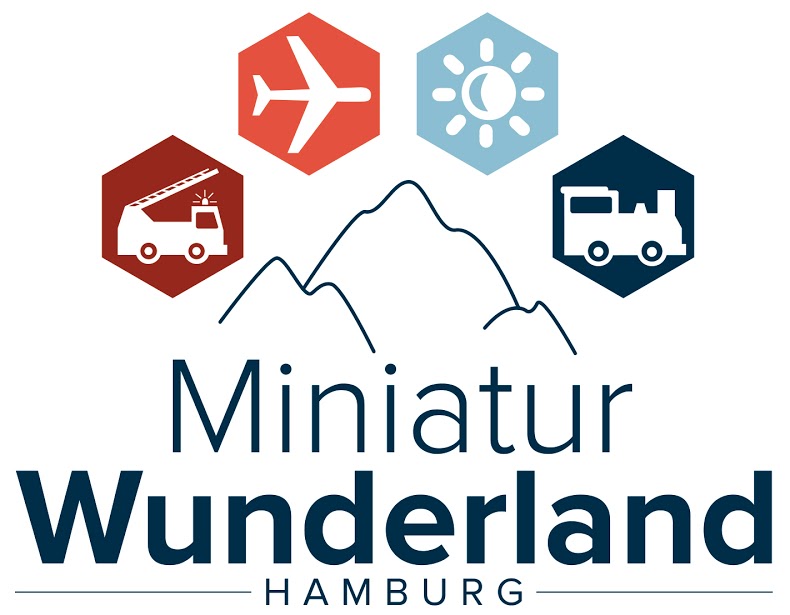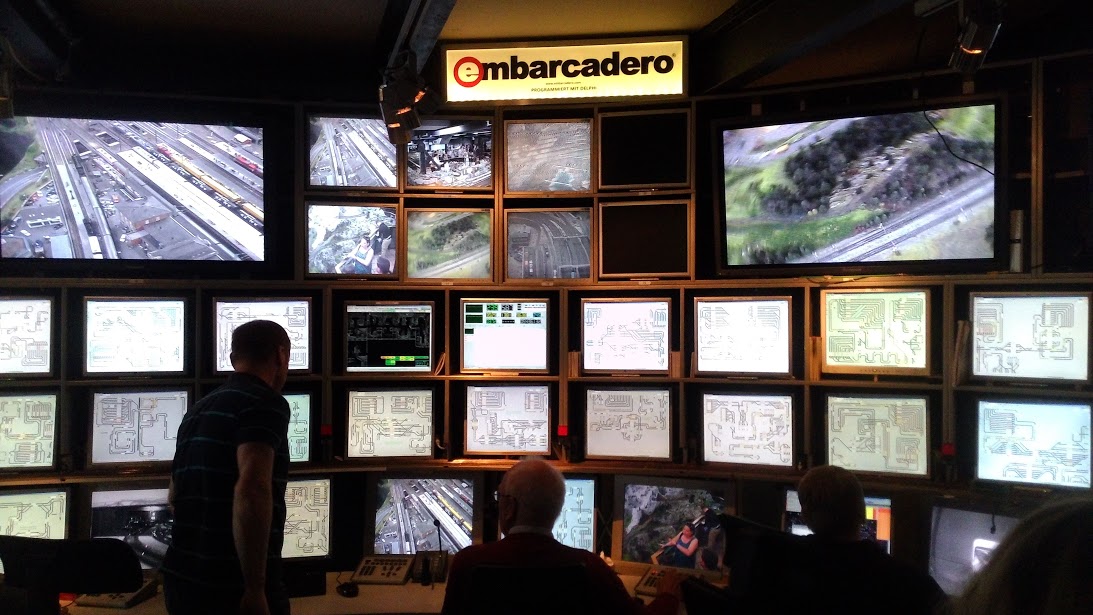
Miniatur Wunderland Hamburg
Applications
Operation of the Miniatur Wunderland
Formats Tools Used
 Delphi
Delphi
Challenges
- Control of the world's largest model railway with over 1,000 trains and 385,000 lights
- Operational 365 days per year up to 20 hours per day / very little downtime
Results
- Flexible and Scalable
- High operational reliability
Located on the river Elbe near Hamburg's historic warehouse district (Speicherstadt), is the world’s largest model railroad - Miniatur Wunderland. Hamburg's number one tourist attraction, it brings in 1.3 million visitors from all over the world. Some 760,000 working hours were spent creating this unique miniature world that extends to 1.5 acres of total area. In addition to sophisticated technology, Miniatur Wunderland is particularly distinguished by its high level of detail; 260,000 figurines driving trains, cars, ships and even flying airplanes. Miniatur Wunderland also boasts a breathtaking miniature cosmos unlike anything else in the world. As Hamburg’s number one tourist destination along with Speicherstadt, it is a UNESCO World Heritage Site.
Delphi is the most popular development tool at our office
– Daniel Wolf, Software Developer
With Delphi as the primary development tool, we can cover all the diverse requirements at Wonderland.
– Daniel Wolf, Software Developer
The Challenge
The project of the twin brothers Gerrit and Frederik Braun, as well as Stephan Hertz, began more than ten years ago. From a technical standpoint, aside from the demand for semi-permanent availability of systems, the main challenge is to synchronize the various plant components and subsystems. The trains, cars, airplanes, ships, and 385,000+ lights all must be in harmony. For example, it’s necessary to synchronize the movement of the cars with the traffic light, turn on the street lights at night, light the homes, and manage the cosmos.
The Solution
Since the beginning Miniatur Wunderland’s broad software landscape has been developed with Delphi, it now stretches almost three-quarters of a million lines of code. Again, an integral part of the architecture is the precise collaboration of the various subsystems.
The vehicle control system plans and monitors vehicle, aircraft, and ship routes. The system even dispatches fire trucks that are given priority over other vehicles as they go. Cars are controlled by a "controlled coincidence," which ensures they use different routes creating a realistic traffic pattern.

The light control, which also controls the cosmos lights in addition to all installation and vehicle lights, provides impressive daytime and nighttime scenes. Different areas are perfectly synchronized so that the lights are turned on for vehicles and houses when twilight begins. As in the real world, not all lights go on at the same time, but instead gradually and randomly. The inhabitants of the miniature world don’t all go to bed at the same time either, thus lights are turned off accordingly.
The "Railware" train control, which was not developed in-house, is nevertheless a Delphi program. It controls all train traffic ensuring all trains run on time. The intense interplay between hardware and software is especially challenging, as Railware depends on detailed feedback from the system (i.e. train location). Software is the only way to achieve collision-free route planning and train control, especially on a tight schedule.
The command distributor ("The Brain") ensures synchronization of the various systems. For example, it ensures that all software systems have the same Wunderland time (every 15 minutes the miniature world runs through a complete day-night cycle). The instructions distributor operates using a self-developed, ultra-compact binary protocol, which sends information with the least possible time delay. It not only copes with single-system failures, but also brings them back to the current state after a failure.
The display panel for Knuffingen Airport is synchronized with the vehicle control system of the airport, and reliably informs passengers about the next departures and arrivals.
The Jumbotron at HSV stadium is essential for every football fan. "Lotto King Karl," who sings before every game is displayed on the jumbotron in a miniature format by a Delphi program.
All these and other programs run together in the so-called "control room," from which technicians can view the entire system and react to events. The IT infrastructure was deliberately decentralized in order to guard against failures. Although rare, but unavoidable, hardware defects disrupt only a single system section, or even just a sub-section.
In addition to what has been mentioned, there is also a toolbox of smaller, highly specialized tools, that help guests better enjoy Miniatur Wunderland.
The checkout, reservation, and ticketing systems manage the gift shop, restaurant, booking, and ticketing. Parts of the systems are synchronized with the online presence, for example, in making reservations or ticket sales via the Internet.
Even a climate control system ensures that guests neither freeze nor sweat during their visit. Humidity is also especailly important at Miniatur Wunderland because the model’s foundational plates can expand or contract with fluctuating humidity.
Conclusion
For more than 15 years, Delphi has been a reliable development tool. It’s safe and constant, yet always provides for new possibilities. Using Delphi we have been able to managed existing operations and also adapt to completely new requirements. Going forward we have a lot of plans for Miniatur Wunderland, and we are confident that Delphi will continue to get the job done and be our tool of choice.
We need a high degree of reliability for operations at Wunderland. That’s been our experience using Delphi over the last 15 years.
– Daniel Wolf, Software Developer
